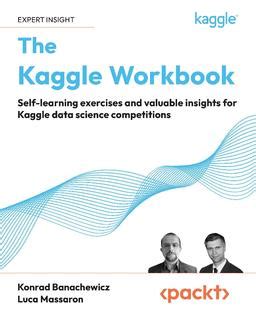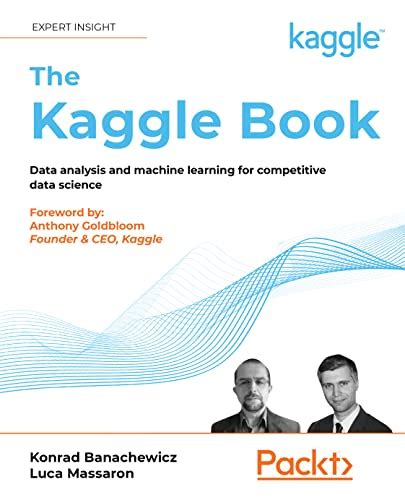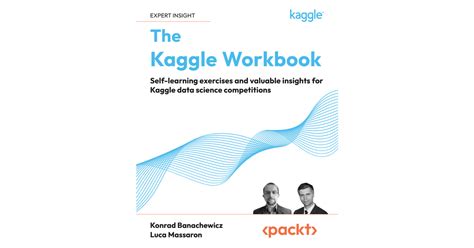Kaggle Learn is an exceptional platform designed for those eager to dive into the world of machine learning and data science. With free, bite-sized lessons, it offers a practical and interactive approach to mastering key concepts, making it ideal for both beginners and seasoned professionals. This guide will walk you through everything you need to know about Kaggle Learn, from getting started to exploring its key features, popular courses, and hands-on projects. By the end, you’ll have the tools to enhance your learning experience and stay ahead in the rapidly evolving field of machine learning. Join the Kaggle community and start your journey today!
electrapk.com invites you to delve into this topic thoroughly.
1. Introduction to Kaggle Learn
Kaggle Learn is an educational platform offered by Kaggle, one of the largest online communities for data science and machine learning enthusiasts. It provides a wide range of free, high-quality learning resources specifically designed to help users gain practical experience in various areas of data science. Unlike traditional courses, Kaggle Learn is focused on hands-on learning, where users can immediately apply concepts through interactive coding exercises and real-world datasets. Whether you’re a beginner just starting with Python or a seasoned data scientist looking to refine your machine learning skills, Kaggle Learn caters to all levels. With courses that range from basic data manipulation to advanced machine learning techniques, the platform is structured in a way that encourages continuous learning. It not only offers flexibility in pacing but also provides immediate feedback, ensuring that users can grasp concepts effectively while solving real-world problems.

2. Getting Started with Kaggle Learn
Getting started with Kaggle Learn is a straightforward process that caters to users of all skill levels. To begin, you simply need to create a Kaggle account, which grants access to the platform’s learning resources and interactive tools. Once logged in, you can navigate to the “Learn” section, where various courses and tracks are available, each focused on specific areas of data science and machine learning.
The platform is designed to be intuitive, with lessons presented in bite-sized formats that allow learners to progress at their own pace. Each course includes explanations, code snippets, and interactive exercises that enable users to apply what they’ve learned immediately. Whether you’re interested in mastering Python, improving your data visualization skills, or diving into machine learning algorithms, Kaggle Learn makes it easy to follow structured paths. Beginners can start with introductory lessons, while advanced learners can jump into more complex topics. The platform’s hands-on approach ensures that users can effectively build and strengthen their skills through practice.

3. Key Features of Kaggle Learn
Kaggle Learn stands out due to its unique features designed to enhance the learning experience for users at every level. One of the platform’s key strengths is its interactive, hands-on approach. Each course includes coding exercises that allow users to apply concepts in real time, solidifying their understanding through practice.
The lessons are structured in a bite-sized format, making complex topics more digestible and allowing learners to progress at their own pace. Another valuable feature is the wide variety of topics available, ranging from Python and data visualization to machine learning and deep learning, catering to a broad spectrum of interests and skill levels.
Additionally, Kaggle Learn provides immediate feedback on exercises, helping users to quickly correct mistakes and reinforce learning. The platform’s integration with Kaggle competitions and datasets allows users to transition from learning to practical application easily. With these features, Kaggle Learn provides a comprehensive and flexible learning environment that encourages continuous skill development.

4. Popular Courses and Tracks
Kaggle Learn offers a wide variety of popular courses and tracks that cater to both beginners and advanced learners in data science and machine learning. One of the most sought-after tracks is the “Python” course, which provides a strong foundation in the programming language widely used in data science. It covers essential concepts such as variables, loops, functions, and libraries like Pandas and NumPy, crucial for data manipulation.
For those interested in visualization, the “Data Visualization” course is another favorite. It teaches learners how to effectively present data using tools like Matplotlib and Seaborn, helping to turn raw data into insightful visuals.
The “Intro to Machine Learning” course is perfect for those new to the field. It covers key machine learning concepts like regression, decision trees, and model validation, providing a solid starting point. For more advanced users, the “Deep Learning” and “Computer Vision” tracks dive into neural networks and image processing, equipping learners with cutting-edge techniques.
These courses are structured with hands-on exercises, allowing users to apply the concepts in real-world scenarios, ensuring practical, actionable learning outcomes.
5. Practical Applications and Projects
Kaggle Learn emphasizes practical applications by incorporating real-world projects into its curriculum, enabling learners to apply their knowledge in meaningful ways. Throughout various courses, users are encouraged to work with actual datasets, allowing them to gain hands-on experience in solving real problems. For instance, in the “Intro to Machine Learning” course, learners build predictive models using datasets like housing prices or Titanic survival rates, applying concepts such as regression and decision trees.
For more advanced courses, like “Deep Learning” or “Computer Vision,” users work on projects that involve tasks like image classification or building neural networks, which are critical in industries like healthcare, finance, and technology.
These projects not only reinforce learning but also prepare learners for real-world job roles by giving them practical experience they can showcase in their portfolios. Kaggle’s platform makes it easy for learners to share their completed projects, participate in competitions, and collaborate with others, fostering an environment of continuous learning and improvement.
6. Community and Collaboration
Kaggle Learn is not just a platform for individual learning; it also fosters a strong sense of community and collaboration among its users. The Kaggle community is one of the largest and most active in the data science and machine learning fields, providing a supportive environment for learners at all levels. Through forums, discussions, and competitions, learners can connect with peers, share insights, and seek help when needed.
The platform’s collaborative nature extends to the Kaggle competitions, where participants can work together on real-world data problems posed by organizations and industries. This team-based approach allows users to tackle complex challenges while learning from one another, enhancing both their technical skills and teamwork abilities.
Kaggle’s community-driven resources, such as shared notebooks and code snippets, further contribute to the learning experience. Users can explore and contribute to public datasets, share their findings, and receive feedback from experienced data scientists. This collaborative culture helps learners stay motivated, engage in peer-to-peer learning, and stay updated on the latest trends and techniques in data science and machine learning.
7. Tips for Maximizing Your Learning Experience
To maximize your learning experience on Kaggle Learn, consider these key tips. First, start with the foundational courses that align with your current skill level. Completing introductory courses will provide a solid base before moving on to more advanced topics. Take advantage of the interactive coding exercises by practicing regularly and applying concepts immediately, which helps reinforce learning.
Engage actively with the Kaggle community by participating in discussions, forums, and competitions. Collaborating with others and seeking feedback can enhance your understanding and provide diverse perspectives on problem-solving. Explore and experiment with different datasets and projects beyond the standard course materials to gain practical experience and deepen your knowledge.
Utilize Kaggle’s public notebooks and code shared by other users to learn different approaches and techniques. This can offer insights into best practices and innovative methods. Set clear learning goals and track your progress to stay motivated and measure your development. Finally, continuously challenge yourself with new projects and keep up with the latest trends in data science to maintain a cutting-edge skill set.
8. Future Trends and Developments
As data science and machine learning continue to evolve, Kaggle Learn is poised to adapt and incorporate future trends and developments. One significant trend is the increased focus on artificial intelligence (AI) and its applications across various industries. Kaggle Learn is likely to expand its offerings in advanced AI topics, such as natural language processing and reinforcement learning, to keep learners at the forefront of these emerging fields.
The integration of more sophisticated tools and platforms into Kaggle Learn’s curriculum is another anticipated development. This could include advancements in cloud computing, which would enable users to work with larger datasets and more complex models efficiently. Additionally, with the rise of automated machine learning (AutoML), learners can expect resources that simplify model building and tuning, making these techniques more accessible.
The emphasis on ethical AI and responsible data science is also expected to grow. Kaggle Learn may include more content on the ethical implications of data usage and model decisions, promoting best practices for developing fair and unbiased algorithms. Staying updated with these trends will ensure that Kaggle Learn remains a valuable resource for mastering cutting-edge technologies and methodologies in data science.
Kaggle Learn offers a robust platform for mastering machine learning with its interactive courses, practical projects, and supportive community. By leveraging its comprehensive features and staying engaged with its resources, learners can build essential skills and stay ahead in the rapidly evolving field of data science. Embracing the hands-on approach and collaborative opportunities provided by Kaggle Learn will ensure continuous growth and success in your data science journey.
electrapk.com
